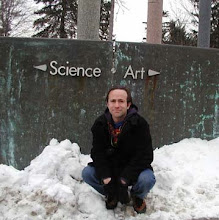Let’s think about all of this in terms of education. Plato begins by saying on (208) to “compare the effect of education and that of the lack of it on our nature to an experience like this.” Which is the setup for his cave analogy, which is not really about teaching people skills, understanding, but exposing them to the Good or the True. Contrast this with Prometheus, though perhaps a bit didactic as a teacher, he shows people how to do things, and they run with it. His gift of fire became “for men a teacher in every art, their grand resource.” (24) Thus as Plato’s man was led out of the cave, and from the knowable realm to the intelligible realm (211), and gleamed truth and understanding, Prometheus gives initially “mindless” men “mind and reason” sight, “their every act was without knowledge, till I came.” (34) “All human skill and science was Prometheus’ gift.” Essentially man’s existence is due to Prometheus, particularly since Zeus, “Of wretched humans he took no account, resolved To annihilate them and create another race. This purpose there was no one to oppose but I: I dared. I saved the human race from being ground To dust, from total death.” (27) Furthermore, “I planted firmly in their hearts blind hopefulness…” (28)
Prometheus’s gift is one to all men, whereas the intelligible realm is only accessible to the few. And it is those few that Plato suggests should lead. “we have bred you to be leaders and kings in the hive, so to speak. You are better and more completely educated than the others, and better able to share in both types of life.” (214) Education is not possible for all: As he writes, “education is not what some people boastfully declare it to be. They presumably say they can put knowledge into souls that lack it, as if they could put sight into blind eyes.” (212) But this is what Prometheus does – and fire is a symbol of change, of possibility, which is in contrast to Plato’s fixed, permanent Truth. Plato needs a fixed, permanent truth for in Pirsig’s words, this is the first time in the history of the world that there is an ideal of Truth and Knowledge, (338) and “It is still a very fragile thing. It can disappear completely. … Plato damns them [the Sophists] because they threaten mankind’s first beginning grasp of the idea of truth.” “Socrates is not just expounding noble ideas in a vacuum. He is in the middle of a war between those who think truth is absolute and those who think truth is relative. … the Sophists are the enemy.” (337) In his philosophy Plato, enshrined permanence in a new way.” (336) On the other side there was Heraclitus, who “called the Immortal Principle fire and introduced change as part of the Principle.” This is in line with Prometheus, bringer of fire, bringer of change. More from Pirsig, “The difference was that Plato’s Good was a fixed and eternal and unmoving Idea, whereas for the rhetoricians it was not an Idea at all. The Good was not a form of reality. It was reality itself, ever changing, ultimately unknowable in any kind of fixed, rigid way.” (335) And in the end, “Truth won, the Good lost, and that is why today we have so little difficulty accepting the reality of truth and so much difficulty accepting the reality of Quality…” (334) We accept that there’s a truth, something out there that we can attain, rather than the idea that all of this is our inventions, and thus can be reinvented. There’s nothing fixed that says “this is the right way,” only that this is what we’ve been doing, and it seems to work. the dialectic is supposed to take us to greater truths, but in fact it often leads to verifying what’s believed before. This is where Prometheus and fire comes in, bringing change, new thought.
It’s the purpose of education, it’s a gift of life, of freedom. And it allows us to challenge the gods, the power elite. Prometheus imagines a world where cunning wins over strength in the future. And even Zeus is eventually won over by this in his eventually pardoning of Prometheus. Change is possible. – Nick

No comments:
Post a Comment